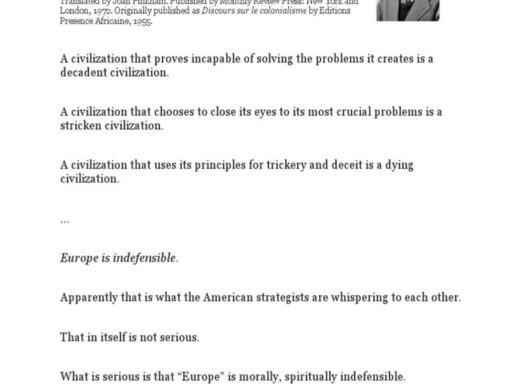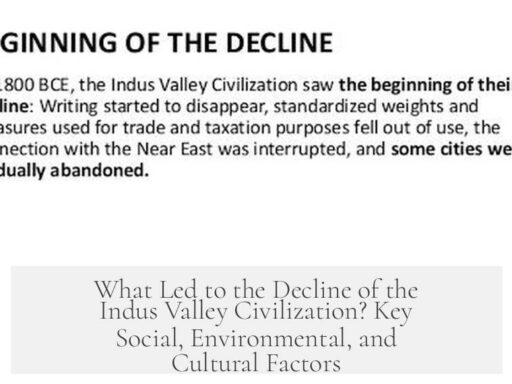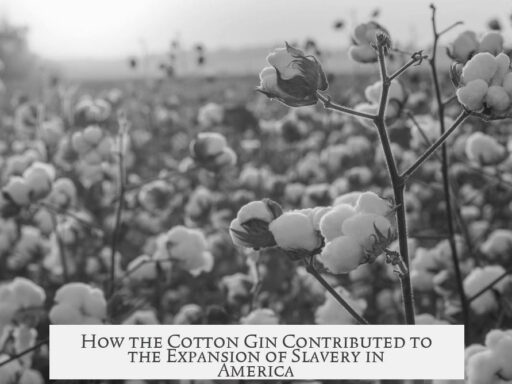In the film Full Metal Jacket (1987), Gunnery Sergeant Hartman’s line “only steers and queers come from Texas and you don’t look much like a steer to me, so that kind of narrows it down!” does not reflect an actual historical or social reputation of Texas as a “queer” state. Rather, it serves as a crude, fabricated insult designed to intimidate recruits, characteristic of the drill instructor’s role and personality.
Hollywood movies often use vivid language for dramatic effect. Hartman’s harsh words in the boot camp scenes highlight his aggressive method of breaking down new soldiers. Drill instructors are known for using harsh, often baseless insults and taunts to assert authority and instill discipline. Their language frequently distorts reality for psychological impact.
Texas, historically, did not have a reputation as a “queer” state in any widespread public or cultural context. The state did have active gay communities, particularly in urban centers such as Austin, Dallas, and Houston. These cities allowed gay and minority groups to congregate and form visible social and political presences, even while remaining largely underground due to anti-sodomy laws prevailing during the Vietnam War era.
During this period, laws criminalizing homosexual acts pushed LGBTQ+ individuals to conceal their identities more than in some other parts of the country. This legal suppression prevented any mainstream or popular normalization of gay communities in Texas, especially outside urban areas.
Interestingly, the traditional cowboy image, strongly associated with Texas, experienced changing public perceptions around the Vietnam War era. The “cowboy” aesthetic, once a symbol of rugged masculinity, started to be perceived ironically by some as “fruity” or effeminate. This shift partly occurred because the cowboy image in media began to display a cleaner, less rugged look compared to other traditionally masculine archetypes, such as soldiers or laborers.
Hollywood films like Midnight Cowboy exemplified these shifting perceptions by portraying cowboy mannerisms in contexts that undercut the macho image. This contributed to an ironic association of masculinity with vulnerability or queerness, contrasting older Hollywood bravado.
Gunnery Sergeant Hartman’s character embodies the over-the-top, hyper-masculine drill instructor archetype. His insults—including the Texas line—are part of his method to provoke and challenge recruits emotionally. These remarks are not grounded in truth but are tactical fabrications. For instance, Hartman casually calls a recruit a communist without evidence and uses other derogatory nicknames freely.
“Hartman is an idiot and he was written to be one so it’s no accident. His lack of understanding, inability to judge character, and non-existent awareness of his surroundings is why he wound up dead, and a dead Marine is useless.” This assessment reflects his role as a flawed authority figure.
Despite his incompetence in genuine leadership qualities, Hartman is idolized by some viewers for his verbal agility rather than his effectiveness. This idolization overlooks that his insults rely on stereotypes and baseless judgments.
In summary, the line about Texas from Full Metal Jacket should be understood as part of a fictional drill instructor’s tough-guy rhetoric, not a reflection of actual societal views. The real social landscape in Texas at that time involved concealed but present gay communities mainly in urban areas, shaped by oppressive laws and shifting cultural images of masculinity and the cowboy figure.
| Aspect | Facts | Context |
|---|---|---|
| Texas Reputation for Queerness | No widespread or historical reputation as such | Hartman’s line is fictional insult |
| Gay Communities | Prominent in Austin, Dallas, Houston | Mostly underground due to anti-sodomy laws |
| Cowboy Image | Seen as less rugged, starting to be ironic or “fruity” | Influenced cultural stereotypes around masculinity |
| Hartman’s Role | Uses exaggerated insults to assert control | Not a source of factual statements |
- Texas was not genuinely known as a “queer” state during the Vietnam War era.
- Urban Texas had hidden but active gay communities constrained by law.
- The cowboy stereotype experienced ironic re-interpretation linked to changing masculinity myths.
- Gunnery Sergeant Hartman’s line is a scripted insult, typical of drill instructor tactics, not social fact.
Did Texas Really Have a “Queer” Reputation? Debunking Gunnery Sergeant Hartman’s Line from Full Metal Jacket
“Only steers and queers come from Texas…” That zinger from Gunnery Sergeant Hartman in Full Metal Jacket (1987)—we all remember it. The brutal drill instructor’s insult echoes in the minds of film geeks and military buffs alike. But was there any truth to the idea that Texas had this “queer” reputation? Or was this just Hollywood flexing its creative muscles? Spoiler alert: it’s mostly baloney.
Let’s break it down.
The Reality About Gay Presence in Texas During the Vietnam Era
Back in the 1960s and early 1970s—around the time the Vietnam War churned on—Texas was far from the wild west utopia of open diversity, especially regarding LGBTQ+ visibility. Gay Texans were mostly in hiding. Strict anti-sodomy laws slapped down strongly, making it risky for anyone to be openly themselves. However, urban centers like Austin, Dallas, and Houston quietly became pockets where gay communities gathered, found each other, and sowed the seeds of political activism.
While cities held these emerging safe havens, rural Texas remained conservative and unforgiving. So if you imagine Texas as a huge, open plain dotted with horseback cowboys—and you do, because well, Texas—don’t forget that most people from there weren’t “out.” Gay Texans could only exist publicly in a few city pockets. The state’s reputation didn’t hinge on individuals in cowboy hats swinging both ways. It was more an underground reality quietly persisting beneath the surface.
The Cowboy Aesthetic: From Rugged Tough Guy to “Fruity” Flair?
Wonder why Hartman chose “steers and queers” in his insult? The phrase tied into the complicated image of cowboys during that period. The cowboy myth was unraveling a bit in the late ’60s and early ’70s. Hollywood bravado gave way to a slightly “sanitized” and cleaner look. Suddenly, the cowboy—a symbol of raw masculinity—was perceived by some as less gritty, maybe even a tad flamboyant. Wild, right?
This was the era when films like Midnight Cowboy (1969) challenged traditional ideas of masculinity and sexuality. Cowboys paradoxically became a subcategory in the gay community’s aesthetic. This might sound nonsensical today but, back then, “clean” and “less rugged” translated for some as “queer.” It was less about the truth of Texas’s population and more about cultural shifts and Hollywood storytelling.
Imagine cowboy boots on a catwalk rather than a cattle ranch. That ambiguity played into stereotypes used by characters like Hartman to “set the tone” in films, rather than any factual judgment.
Gunnery Sergeant Hartman: The King of Hyperbole and Hot Air
Does Hartman’s line have a shred of accurate Texas slang or a genuine cultural saying behind it? Nope. He’s pulling it out of thin air. The character is designed to be an over-the-top drill instructor who has to spit venom and unearned authority to keep control over 17-year-olds undergoing brutal training.
Drill instructors thrive by twisting truth into tyranny. Their job requires inventing insults and threats from thin air to push soldiers harder. Hartman’s “Texas queer” line fits right in with that beat—a throwaway insult thrown to intimidate.
Interestingly, Hartman’s entire personality is an exaggerated caricature. He makes up accusations like calling someone a communist without proof—as if it’s his secret weapon. His character isn’t wisdom or masculine ideal; he’s an aimless boor with no real insight, barely able to see the world around him.
In fact, actor R. Lee Ermey, who played Hartman, was a real-life Marine drill instructor who understood this well. Hartman’s incompetence is part of the point, and the character meets a grisly end because such foolishness leads nowhere in real life.
So Why Do People Idolize Hartman?
If Hartman is an idiot by design, why do certain macho men love quoting him? Simple: Machismo loves loud mouth, sharp tongue, and bold mockery—regardless of true competence. Hartman’s quick wit and tongue-lashing style feed into a fantasy that toughness equals verbal brutality.
But here’s the kicker—screaming insults doesn’t make anyone *actually* tough or a manly ideal. Real strength comes from empathy, insight, and leadership, which Hartman stunningly lacks. Ironically, those idolizing him might miss this layered message hidden in plain sight.
Wrapping It Up: Texas, Queer Reputation, and Hollywood Hype
Texas did NOT have a genuine reputation as a “queer” state in the Vietnam era nor anytime before or after in any broad sense. The phrase in Full Metal Jacket exists mainly as an insult in a tightly controlled cinematic moment. It reflects the ignorance of a drill instructor who thrives on creating enemies from thin air rather than any factual cultural judgment.
Texas’s LGBTQ+ community was quietly building its presence, especially in cities, battling draconian laws and social stigma. The “cowboy as a gay subcategory” stereotype was a quirky cultural twist, but hardly a defining feature of Texas’s identity at the time.
So next time someone tosses out Hartman’s fiery line, remember: Hollywood loves drama and shock value more than historical accuracy. Reality tends to be messier, quieter, and far richer than a snappy insult shouted during boot camp.
If you want to dig deeper, explore how urban Texas gay communities blossomed post-Vietnam, or how media shifted the cowboy archetype from rough ruggedness to a more complicated symbol—it’s a fascinating journey. Just don’t blame Texas for the Hollywood sass of a drill instructor hurling insults at fresh recruits.
Curious how cultural perceptions shape insults and stereotypes? Does society still cling to outdated labels in surprising ways? It’s worth pondering as you watch movies or hear those biting one-liners tossed around. Sometimes the shock is all there is.
Did Texas have a real reputation as a “queer” state during the Vietnam War era?
No, Texas did not have a public reputation as a “queer” state. Strict anti-sodomy laws pushed gay communities underground, especially outside urban centers like Austin, Dallas, and Houston.
Why does Gunnery Sergeant Hartman say “only steers and queers come from Texas” in Full Metal Jacket?
Hartman’s line is a fabricated insult meant to intimidate recruits. Drill instructors often use baseless insults as part of their tough-guy persona, not to state any social truth.
Was the cowboy image considered “fruity” or connected to gay culture at the time?
Yes, during that period, the cowboy image was ironically seen as a gay subcategory because it appeared cleaner and less rugged, contrasting with traditional tough images like soldiers.
Does Hartman’s character in Full Metal Jacket represent a credible military authority?
No, Hartman is written as incompetent and often invents insults without evidence. His tough talk is part of his role but does not reflect real leadership qualities.
Did urban centers in Texas have visible gay communities during the Vietnam War?
Yes, cities like Austin, Dallas, and Houston had gay communities, but they remained discreet due to social stigma and legal restrictions at the time.


